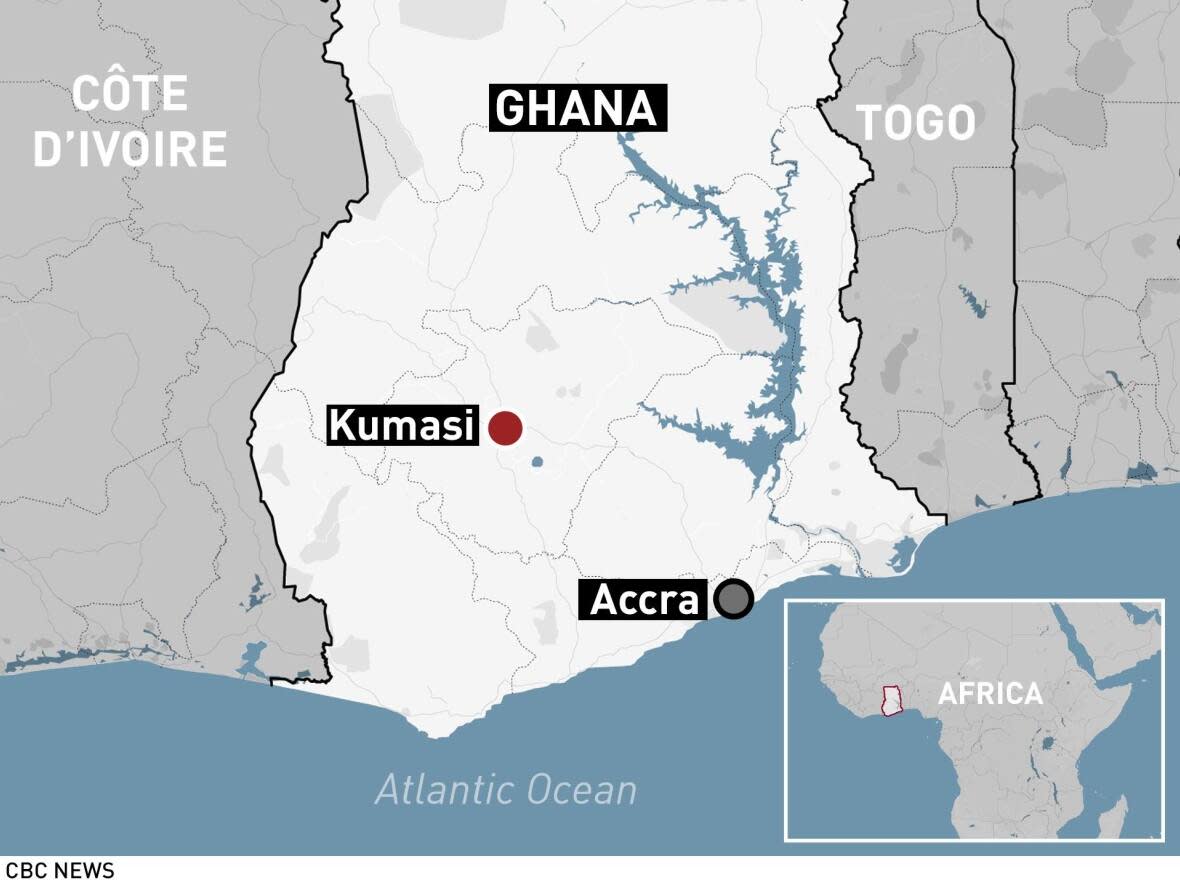Men who kidnapped UNB students in Ghana sentenced to 10 years

Four men who kidnapped two University of New Brunswick students in Ghana in 2019 have each been sentenced to 10 years of hard prison labour, according to the country's state broadcaster.
Following a trial, the men were found guilty of kidnapping Lauren Tilley and Bailey Chitty in Kumasi, a town in the Ashanti region of Ghana in June, 2019, according to the Ghana Broadcasting Corporation.
The convicted men include three Nigerians, Sampson Aghalor, described as the mastermind of the kidnapping, along with Elvis Ojiyorwe, Jeff Omarsa and Ghanaian Yussif Yakuba.
Tilley and Chitty were University of New Brunswick students on a volunteer trip in Ghana when they were kidnapped outside a hostel they were staying at in Kumasi on June 4, 2019.
Tilley is originally from the Saint John area, and Chitty is from Amherst, N.S.
A week after they were kidnapped, Ghanaian security forces raided a location in the south-central Ashanti region, arresting eight men and rescuing the women, who were physically unharmed.
According to the Ghana Broadcasting Corporation, four of the men originally arrested were later released.
The prosecution in the trial called on 11 witnesses, including the women and their parents, according to the Ghana Broadcasting Corporation.
Evidence during the trial revealed the men demanded a ransom of $800,000 from the women's parents.
One of the women testified the kidnappers threatened to kill them if the ransom money wasn't sent.
At the time of their release, Ghana's president, Nana Akufo-Addo, vowed to crack down on kidnappers amid fears the abductions could harm tourism.
The women's kidnapping made national headlines in Canada, and generated waves of relief among residents and politicians in New Brunswick and Nova Scotia when they were rescued.


